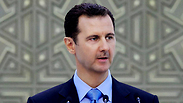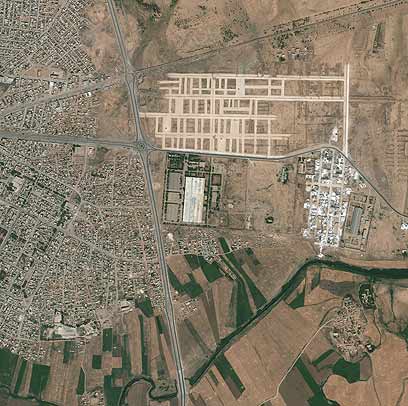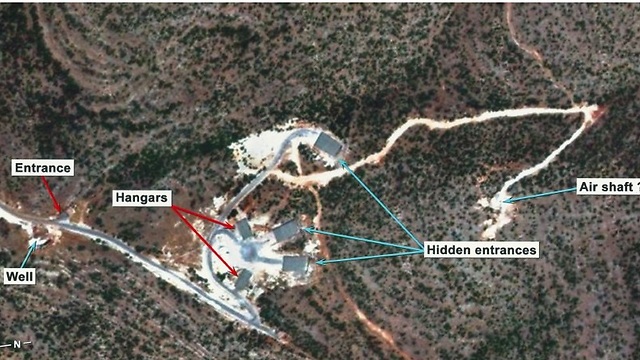
Syrian rebels: Iranian officers spotted near site of reported nuclear facility
Senior Free Syrian Army official says suspicious Syrian, Iranian movement noted in Qusayr, where plant is said to be, enhanced by 'unprecedented' Hezbollah security.
Following reports Syrian President Bashar Assad was building an underground nuclear facility, a senior Syrian rebel official told Saudi paper Okaz on Sunday that the Free Syrian Army has noted suspicious Syrian and Iranian movements in the town of Qusayr on the outskirts of Homs, where the facility is said to be.
According to the official, Abu Muhammad al-Bitar, the Free Syrian Army noted the presence of Iranian officers and "unprecedented" Hezbollah security in the area.
Al-Bitar said the Friday report on Der Spiegel has been discussed at length in command meetings of rebel factions in the Kalamoon area.
He went on to say that "what can be confirmed is that what's going on there is happening under direct Iranian supervision and the Syrian regime is only a cover-up for this."
Iran's Foreign Minister, Mohammad Javad Zarif. rejected the Der Spiegel report on Sunday as "ridiculous," saying "the magazine's allegation is one of the attempts made by those circles whose life has been based on violence and fear to cloud the international community with illusion and create imaginary concerns about the Islamic Republic," according to the FARS news agency.
Citing information made available by unidentified intelligence sources, Der Spiegel said the plant was in an inaccessible mountain region in the west of the war-ravaged country, two kilometers (1.2 miles) from the Lebanese border.
It is deep underground, near the town of Qusayr and has access to electricity and water supplies, the magazine said. It said it had had access to “exclusive documents,” satellite photographs and intercepted conversations thanks to intelligence sources.
According to the report, the most recent satellite images show six structures which conceal entrances to the reported facility, said to be below ground. The site was also reported to have special access to Syria's power grid, connected to the nearby city of Blosah.

According to the report, a particularly suspicious detail is a deep well which connects the facility with a local lake: "Such a connection is unnecessary for a conventional weapons cache, but it is essential for a nuclear facility," the report said.
However, the clearest proof the report cited was an intercepted communication by radio traffic recently intercepted local spies, in which the voice identified as belonging to a high-ranking Hezbollah official can be heard calling the place an "atomic factory" specifically naming Qusayr as the area.
More importantly, the Hezbollah official frequently updated Ibrahim Othman, the head of the Syrian Atomic Energy Commission. The Syrian regime has transferred 8,000 fuel rods to the plant that had been planned for a facility at Al-Kibar, it added.
Western experts suspect, based on the documents, that a reactor or an enrichment plant could be the aim of the project, whose codename is “Zamzam,” Der Spiegel said. The report said North Korean and Iranian experts are thought to be part of the “Zamzam” project.
If true, the paper claimed that the facility serves as was proof that the Syrian regime has not forgone its desire to attain nuclear arms, despite a 2007 attack attributed to Israel on what was reportedly to be a heavy water reactor secretly built in Syria.
In 2007, a bombing raid on an undeclared Syrian nuclear facility at al-Kibar was widely understood to have been an Israeli strike, but it was never acknowledged by the Jewish state.
In a 2009 interview with Spiegel, Assad claimed to "want a nuclear-free Middle East, Israel included." But a later IAEA investigation from 2011 found that "the destroyed building was very likely a nuclear reactor."
AFP contributed to this report.











